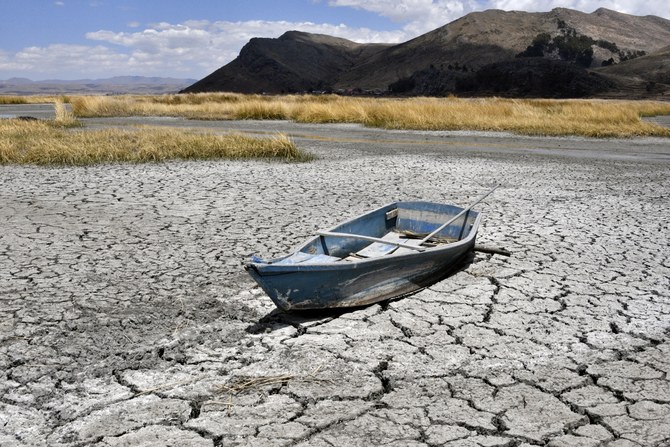Ranvir S. Nayar
A new report by the United Nations University has warned that the world is rapidly approaching six interconnected tipping points that could lead to dramatic outcomes for the people and the planet. While many of the issues raised are not new, the report does serve to highlight the severity of the crisis that the world is blindly racing toward.
We should perhaps be even more worried about the deep connections that link most of the points, which means that a worsening situation on one can push the others over the brink, even if independently their own deterioration may have slowed. Thus, collectively, it represents a potential snowball effect, where major slippage in one area can propel all others. Another common thread in all these factors is the significant role played by humanity.
The first, and perhaps the most global, tipping point is extreme heat, caused mainly by global warming and related climate change. Over the past few years, in vast parts of the world, from northwestern Canada to southeastern Australia and from far eastern corners of Russian Siberia down to Argentina and Chile, extreme heat waves have become common, along with higher-than-normal temperatures year round. Heat waves have been particularly intense in South Asia, the Middle East, North Africa and even parts of Europe, leading not only to severe illnesses but also to the untimely deaths of people and animals.
Extreme heat, in turn, has a severe impact on at least two other issues raised in the report. First, it leads to faster melting of mountain snow, especially glaciers, and as a result an overwhelming majority of mountain glaciers in the world are receding rapidly or disappearing. Between 2000 and 2019, glaciers lost 267 gigatons of ice per year, and over 90,000 glaciers of the Himalayas, Karakoram and Hindu Kush mountains are at risk of reaching a tipping point, threatening almost 870 million people who rely on them for water.
While the faster melting of glaciers leads to flash floods, it also has a paradoxical impact on falling groundwater tables across parts of the world worst hit by rising temperatures. Supplies of freshwater are rapidly declining across the world, threatening the fate of over 2 billion people who depend almost exclusively on underground water reservoirs or aquifers. According to the report, about 70 percent of groundwater withdrawals are used for agriculture, often when there is insufficient water available from above-ground sources. But due to climate change, lower rainfall, and a sharp rise in water use for domestic, farming and industrial needs, the aquifers are being rapidly depleted and are close to their own tipping point. The report says that more than half the world’s aquifers are being depleted faster than they can be replenished. While nations such as Saudi Arabia have already passed this point, bigger worries lie ahead as one of the world’s most populous countries, India, races toward this tipping point, putting at risk close to 700 million people who depend on groundwater for survival or their livelihoods. The depletion of groundwater will also disrupt global food production systems, especially when the depletion hits countries such as India, one of the largest food producers in the world and currently the largest rice exporter.
The threat of extreme weather events, failing crops, rising illnesses and untimely deaths due to the impact of climate change is also pushing global insurance premiums significantly higher, making them increasingly unaffordable for many, especially farmers in poor nations. In some cases, insurance companies are withdrawing from areas or regions where the incidence of extreme weather events, such as wildfires, flash floods or hurricanes, are increasing sharply.
Since the 1970s, damage as a result of weather-related disasters has increased sevenfold, with $313 billion in global economic losses in 2022 alone, while severe disasters are forecast to double globally by 2040, according to the report. This puts a large number of people, including farmers, homeowners and small businesses, in a precarious situation, as being without insurance leaves them at high risk of financial ruin. For all practical purposes, it may already be too late to reverse the direction of the changes being seen and to pull the world back to safety. However, it certainly is possible to mitigate the impact of these challenges. This needs a uniform and united approach, which begins with every individual changing the way things have been done, and completely overhauling our lifestyles and priorities.
It will require saving the proverbial drop of water, eliminating the last sign of wastage, be it in water, food, energy or other areas, and taking proactive measures, such as protecting the flora and fauna around us. Even these measures may prove inadequate, but inaction and continuing the way we have acted in recent years are certain to accelerate the journey of the planet and people toward total destruction.







